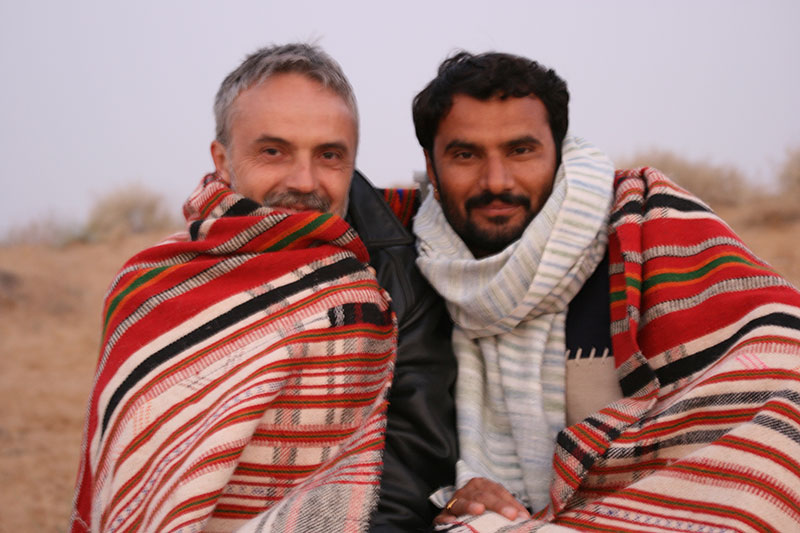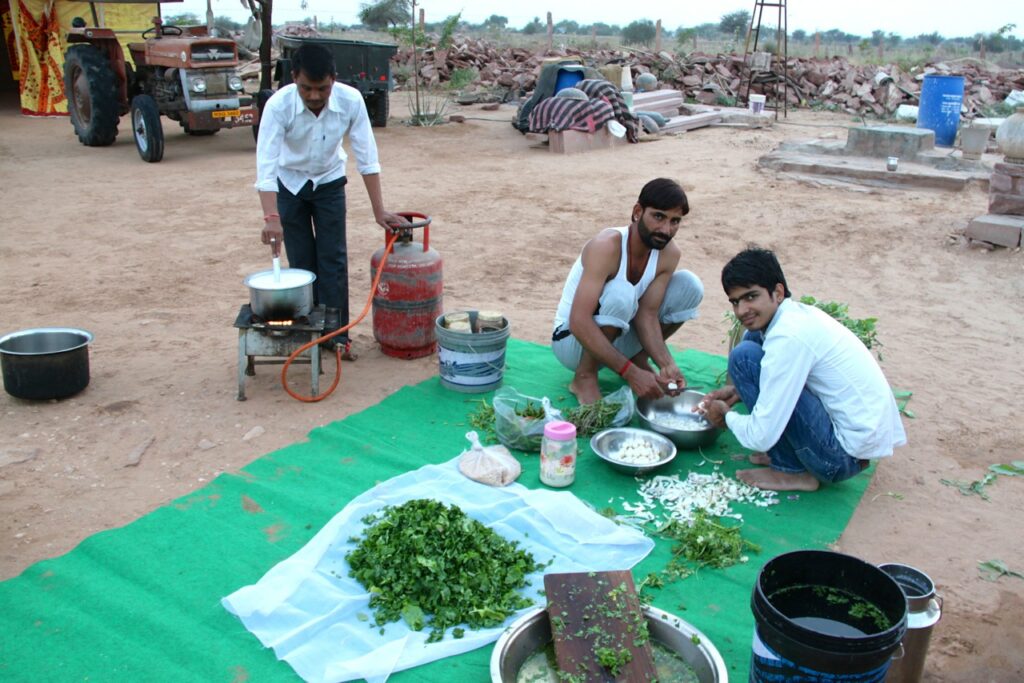Our tradition’s founder, ShriDev Jasnathji, was very passionate about the region’s ecological balance. He understood the complicated interdependence of organisms – one species living harmoniously with another. He believed that trees have a spiritual vibration that supports the eco-system. So he inspired people to adopt best ecological practices, by planting the Jaal tree (Desert Grape). Today they are held in highest respect within the folds of the Jasnath tradition.
Trees Keep Desert Alive
In addition to its great ecological importance to the Marwar region. Jaal trees are the perfect antidote to the harshness of the desert. Laden with leaves they provide shadow, and aid in rainfall. On average, these trees endure more than a hundred oppressive summers in their long lifetime!
The Peepal tree is equally venerated. Nearly all of its parts are used for medicinal purposes: bark, leaves, seeds, and shoots. Its leaves serve as a wonderful laxative as well as healing tonic for the body. Its leaves help to control heart palpitations, combating cardiac weakness. Its young leaves increase semen, and are useful in fevers.
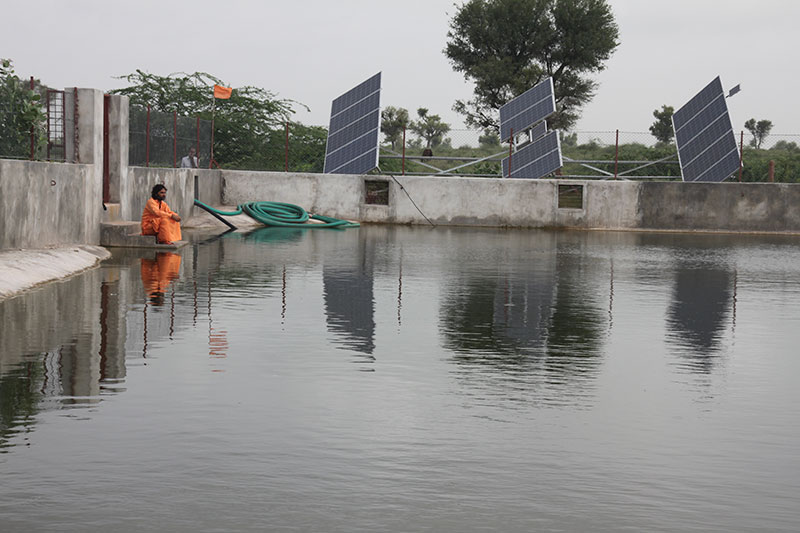
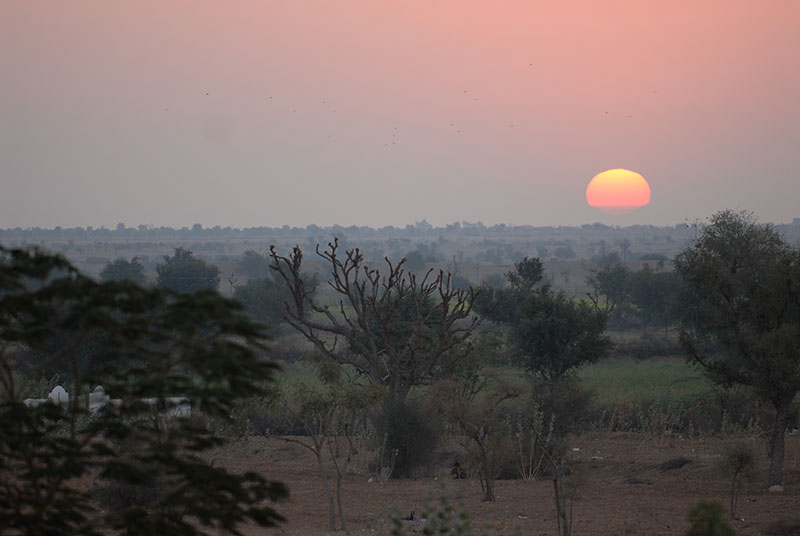
Afforestation
Shri Jasnath Asan keeps Shridev Jasnathji’s passion for ecology firmly embedded in its Trust’s mandates, knowing it will continue to grow in importance for this region as water shortages increase. More than 100 trees have been planted so far. Our afforestation mission is continued 1.5 hours southwest of the ashram on the Rampura estate, where we have provided a home for ecological experiments in the improvement of Rajasthan’s indigenous species of trees, to discover and share what this desert sanctuary can support.
An alliance with the Government of Rajasthan’s Agricultural Department has allowed us to plant more than 4000 trees successfully, for which Shri Surajnath Siddh has received an honorable award.
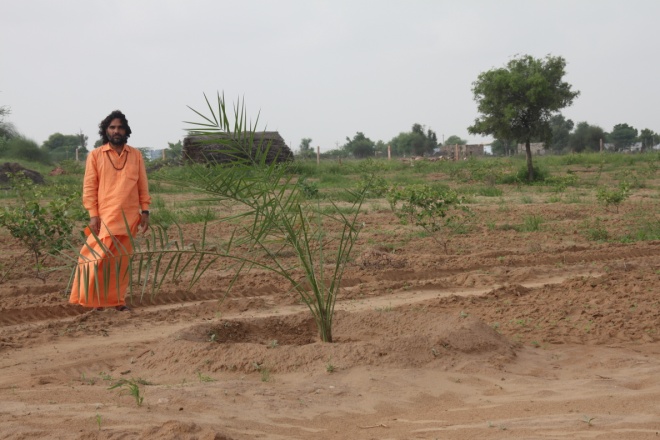
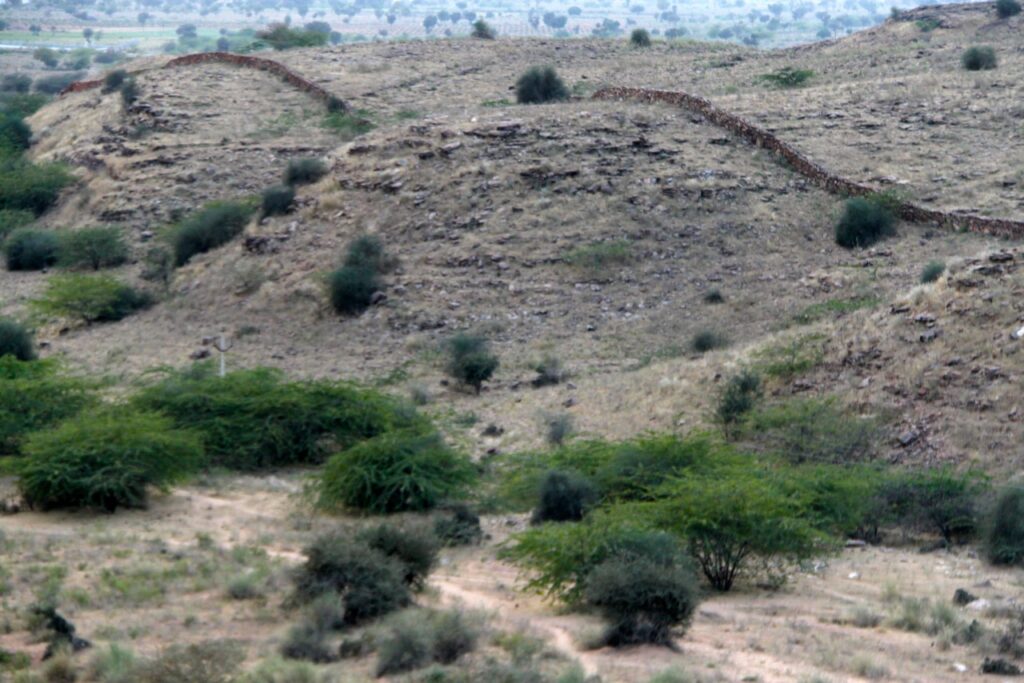
To Grow a Tree in the Desert
To undertake an ecological transformation project of this size, extraordinary measures must be taken to ensure immediate success. Trees are planted prior to monsoon season, and lovingly nurtured to adulthood with drip irrigation and regular attention. A state-of-the-art water storage tank measuring 50m x50mx5m has been built to feed the trees and crops, using solar power to fill and maintain it. Species planted successfully include berries and other shady shrubs, as well as:
- 650 Israeli date
- 435 Palm
- 585 Lemon
- 56 Gunda
- 50 Sheesam
- 1500 Pomegranate
- 5 Bael
- 35 Shade
- Neem
- Peeple
- Kathala
- Khejari
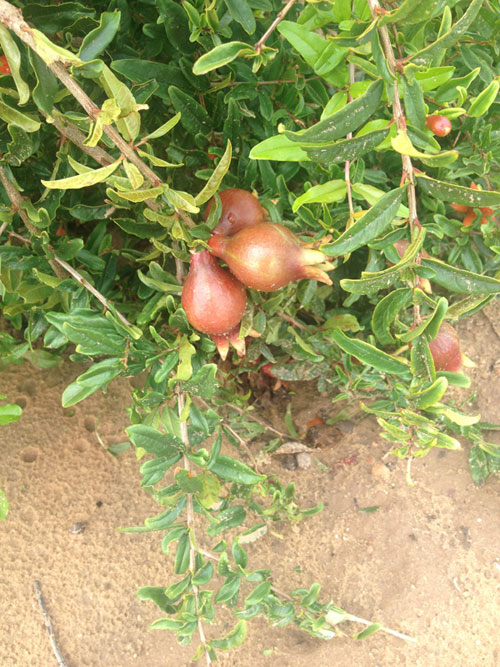
Rajasthan’s First Yoga Eco-Retreat
Rampura estate is the future home of Rajasthan’s first yoga eco-retreat, a 35 acre oasis where researchers, yogis, creatives, and city-weary vacationers can share a common natural space. Planting and construction began in 2013 and will continue for 3 years. It will become home to 9 – 15 students and guests, plus sufficient staff from local villages to care for the trees and visitors, plus many more species of trees including papaya, mango, banana, ashwaganda, amla, and cheeku. Dormitories, a laboratory, office, dining hall, swimming pool, and yoga hall are just a few of the buildings planned, as well as parking lots, landscaping, fencing, and animal barns. Organic fruits and vegetables grown here will feed the eco retreat inhabitants, the surrounding villages, and the residents of the ashram.
Living In Tune With Nature
Until the property’s development plan is fully realized, ashram inhabitants and visitors enjoy camping here in traditional Rajasthani desert huts, bathing in the morning sun, sleeping on cots under the stars, and fashioning delicious meals from wild plants in a make-shift kitchen. Perhaps you have never heard silence such as this.
